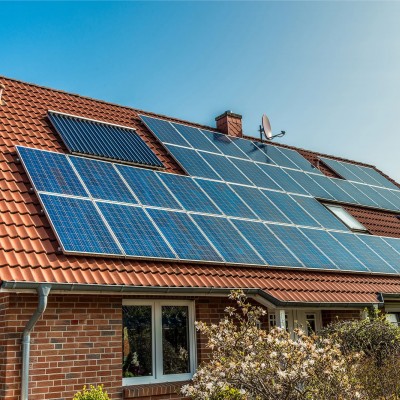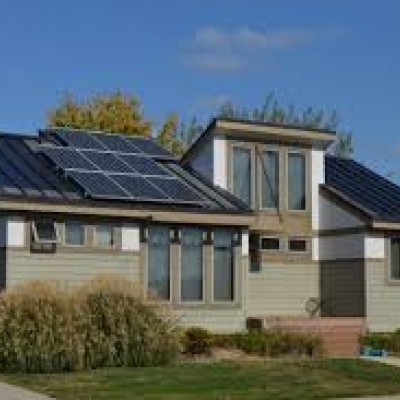Obama administration looks to make solar more accessible
This morning the White House anounced a new initiative to increase access to solar across the country. Among other things, the initiative increases renewable energy goals in federally subsidized housing, improves technical assistance for the installation solar on affordable housing, and provides states with guidance to develop more extensive solar programs. The Obama administration’s commitment to breaking income barriers to solar so that all citizens can join in on climate action should be applauded. Read the full report here.
The Obama Administration is committed to addressing climate change, promoting clean energy, and creating good paying jobs. That is why the Administration is announcing a new initiative to increase access to solar energy for all Americans, in particular low- and moderate- income communities, while expanding opportunities to join the solar workforce.
Last year, the United States brought online as much solar energy every three weeks as it did in all of 2008, and the solar industry added jobs 10 times faster than the rest of the economy. And since the beginning of 2010, the average cost of a solar electric system has dropped by 50 percent. The executive actions and private sector commitments that we are announcing today will help continue to scale up solar for all Americans, including those who are renters, lack the startup capital to invest in solar, or do not have adequate information on how to transition to solar energy. The key components of the initiative that the Administration is announcing today are:
- Launching a National Community Solar Partnership to unlock access to solar for the nearly 50 percent of households and business that are renters or do not have adequate roof space to install solar systems, including issuing a guide to Support States In Developing Community Solar Programs;
- Setting a goal to install 300 megawatts (MW) of renewable energy in federally subsidized housing and providing technical assistance to make it easier to install solar, including clarifying how to use Federal funding;
- Housing authorities, rural electric co-ops, power companies, and organizations in more than 20 states across the country are committing to put in place more than 260 solar energy projects, including projects to help low- and moderate- income communities save on their energy bills and further community solar; and
- More than $520 million in independent commitments from philanthropic and impact investors, states, and cities to advance community solar and scale up solar and energy efficiency for low- and moderate- income households.
To continue enhancing employment opportunities for all Americans in the solar industry, the Administration is announcing the following executive actions and private sector commitments, including:
- AmeriCorps funding to deploy solar and create jobs in underserved communities;
- Expanding solar energy education and opportunities for job training; and
- The solar industry is also setting its own, independent goal of becoming the most diverse sector of the U.S. energy industry, and a number of companies are announcing that they are taking steps to build a more inclusive solar workforce.
These new actions build on President Obama’s goal to train 75,000 workers to enter the solar industry by 2020 and the Solar Ready Vets program that will train transitioning military personnel for careers in the solar industry at 10 military bases.
Massachusetts’ Solar Loan Program was mentioned as one of the leading state initiatives to increase access to solar through community shared solar.
The State of Massachusetts is committing to exploring new models to support community solar projects through the Massachusetts Solar Loan Program. Through the program Massachusetts will work with the solar industry and lenders to provide affordable financing for solar electricity, with specific support for low- and moderate- income residents as well as community solar projects. MassCEC and DOER will also continue to work collaboratively with the private sector to create pathways towards innovative community solar models and projects that increase access to solar electricity for Massachusetts residents.


